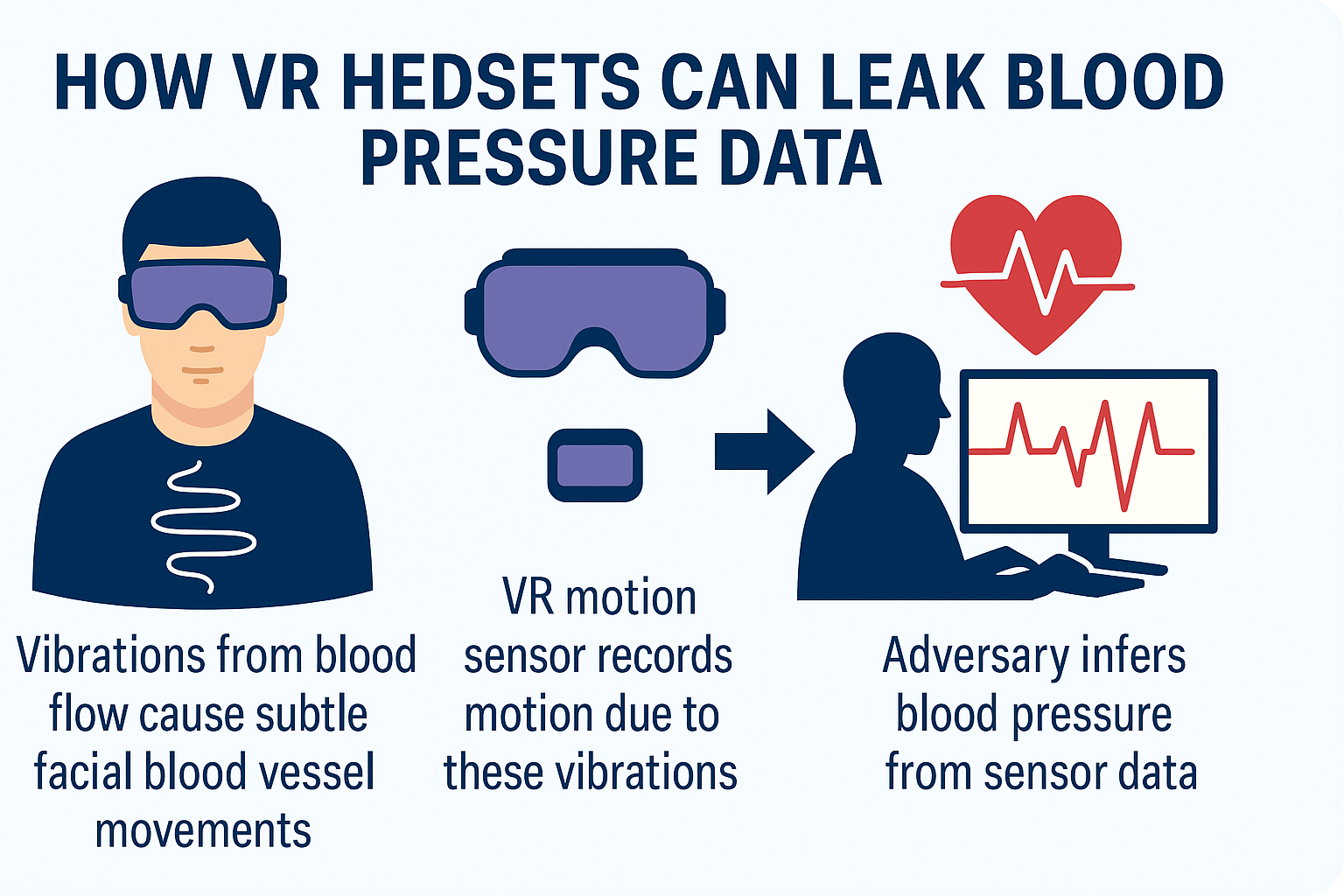New Study Uncovers Privacy Risks: VR Headsets Can Secretly Monitor Your Blood Pressure
College Station, TX — May 2025
SHARE THIS

A team of researchers from Temple University, Texas A&M University, Rutgers University and New Jersey Institute of Technology has uncovered a serious privacy vulnerability in consumer virtual reality (VR) headsets. The study reveals that built-in motion sensors, typically used to enhance immersive VR experiences, can be covertly exploited to continuously infer users’ blood pressure without their knowledge or consent. The full findings are being presented at the 2025 IEEE Symposium on Security and Privacy (S&P), one of the leading conferences in cybersecurity and privacy research.
The attack, dubbed BPSniff, demonstrates that blood-pressure-related vibrations—specifically ballistocardiogram (BCG) signals generated by blood flow—can be detected by high-frequency motion sensors embedded in devices like Meta Quest and Meta Quest 2. By analyzing these subtle physiological movements, attackers can estimate both systolic and diastolic blood pressure with a level of accuracy comparable to clinical-grade devices.
Unlike traditional health monitoring systems that require user calibration or consent, BPSniff bypasses both. The research shows that malicious apps or web-based scripts can access motion sensor data from VR headsets without explicit permissions. This allows adversaries to passively collect highly sensitive biometric data in real time, raising alarms about user surveillance in metaverse environments.
BPSniff utilizes advanced machine learning models, combining variational autoencoders (VAE) and long short-term memory (LSTM) networks, to reconstruct blood flow patterns from sensor data. These reconstructions are then used to estimate blood pressure continuously, achieving mean errors of just 1.75 mmHg (systolic) and 1.34 mmHg (diastolic)—well within FDA and AAMI medical standards.
The researchers tested the attack across multiple use cases, including various physical postures, headset models, and user movements. Even with noise introduced by normal VR activity like gaming or walking, BPSniff remained effective. The system’s robustness was further confirmed through an eight-week longitudinal study with 37 participants.
The implications are broad and alarming. Unauthorized access to blood pressure data can reveal information about a person’s health status, stress levels, emotional states, and reactions to stimuli—potentially enabling manipulation, discrimination, or psychological profiling. This threat escalates when combined with identity linkage from other data sources, opening the door to highly personalized and invasive surveillance.
To mitigate the risk, the researchers advocate for stronger privacy controls on motion sensor access, including real-time usage monitoring, permission-based frameworks, and AI-driven auditing tools within VR platforms. As the metaverse grows into a space for entertainment, collaboration, and even healthcare, this study highlights the urgent need to secure embedded sensors against misuse.
To read the full paper, click here.
Citation:
Ye, Zhengkun, Ahmed Tanvir Mahdad, Yan Wang, Cong Shi, Yingying Chen, and Nitesh Saxena. “BPSniff: Continuously surveilling private blood pressure information in the metaverse via unrestricted inbuilt motion sensors.” In 2025 IEEE Symposium on Security and Privacy (SP), pp. 4356-4374. IEEE, 2025.
Read more stories like this on AI Spies News.
Follow us on Medium.
